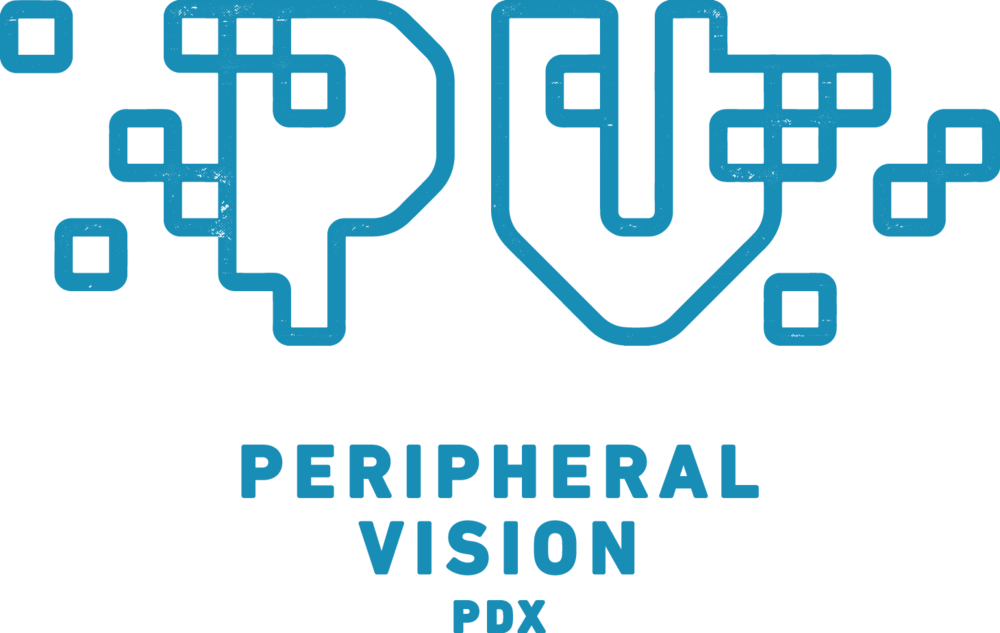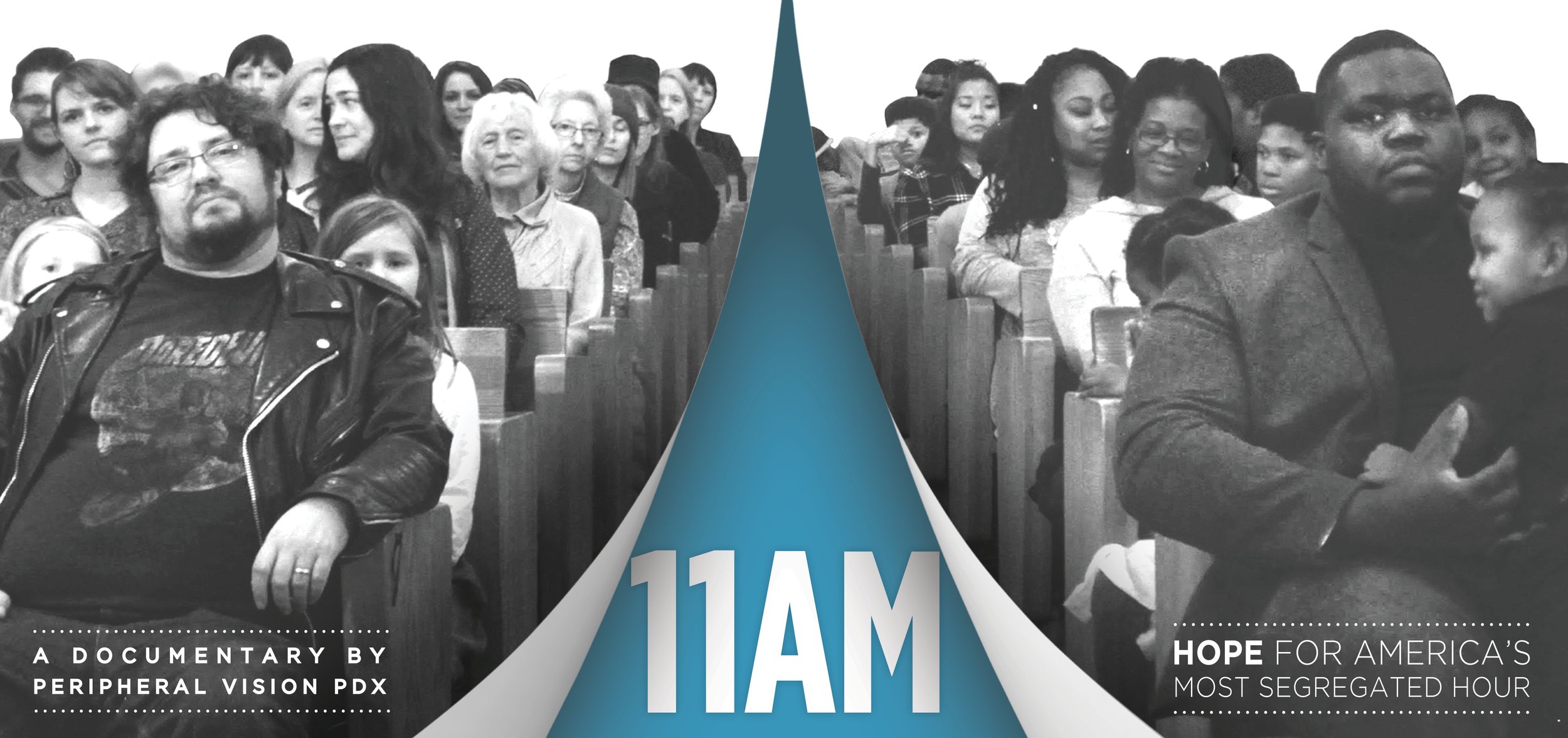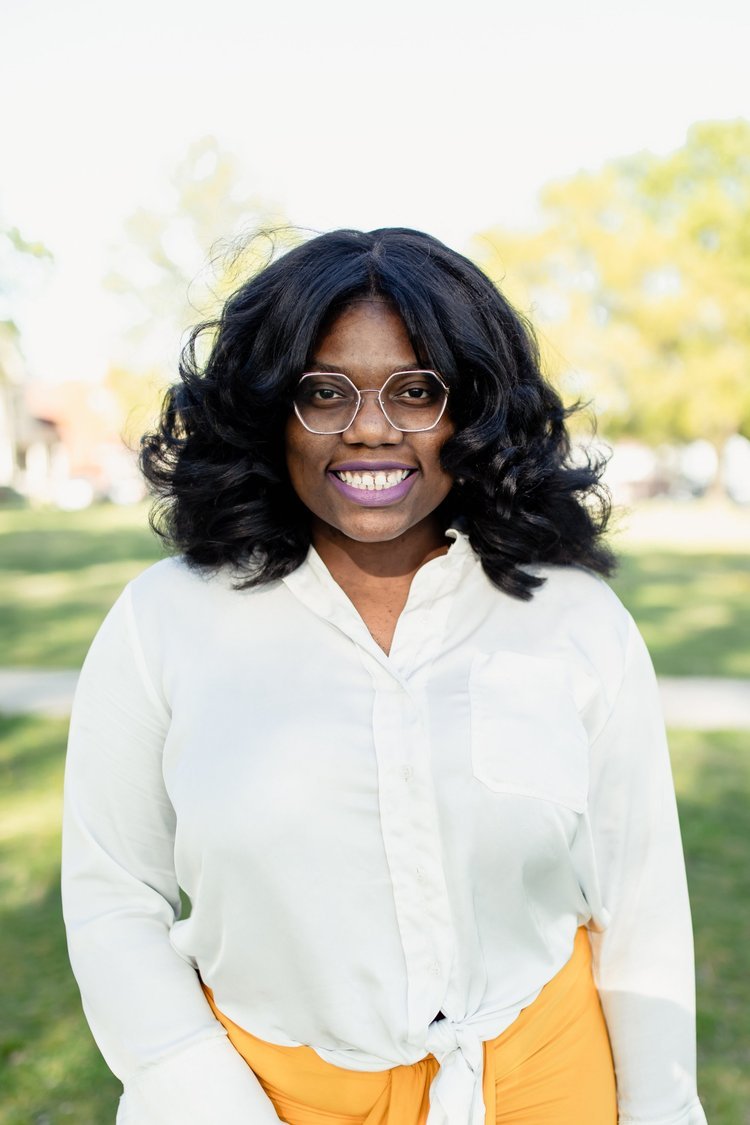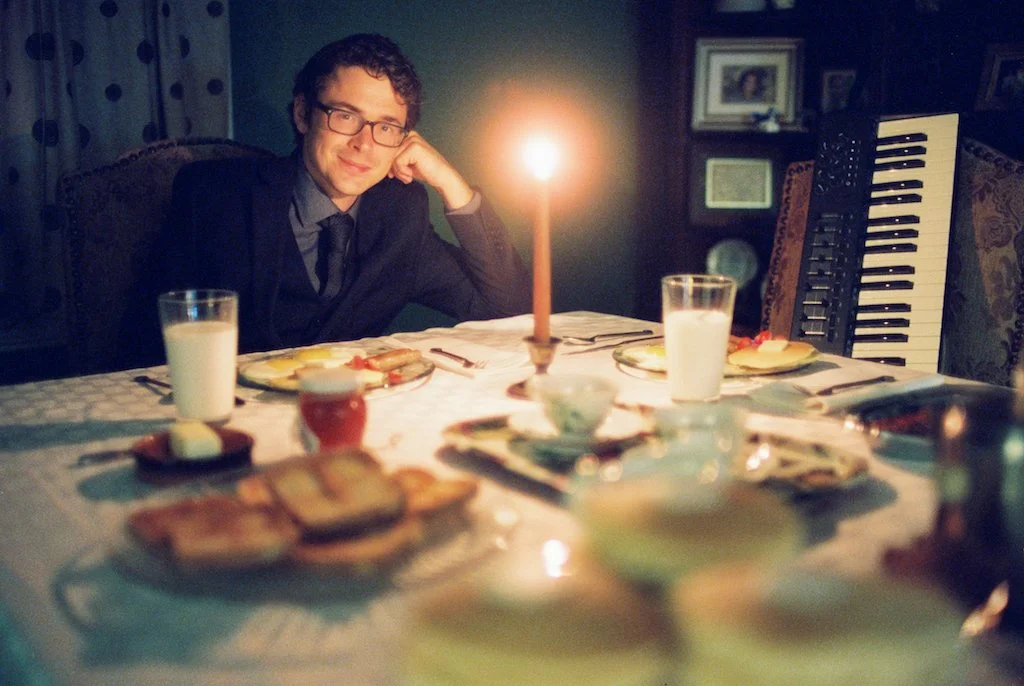Where Are They Now?
In 2017, Peripheral Vision PDX followed students at the Urban Doxology Songwriting Intensive in Richmond, VA, as they struggled to work together in writing songs that spoke to the true hopes and roadblocks of racial reconciliation work within a specific community. At the center of this story was an unlikely partnership between two interns who came from wildly different backgrounds and experiences. Now, nearly six years later, we set out to discover where they are now, and how the experience of this internship and their unlikely partnership continues to impact their lives.
RaeAnna Hudnell
“It was a life-changing experience…I love the film and I absolutely feel it captured me and my experience well: both the good parts and the difficult parts where we wrestled to be in a diverse community, write songs, and grow.”
RaeAnna Hudnell grew up in Grand Rapids, Michigan and learned about the internship while a student at Calvin College. She joined the summer songwriting program out of a passion for multicultural worship and community justice.
Since the internship, Rae has released her own EP titled Journey to Freedom. In 2019, she made the move to Richmond, VA, where 11AM was filmed, to work and tour with Urban Doxology. In 2021, she became East End Fellowship‘s Worship Leader. “The community we were writing for, I’m still there,” she says. “It’s AMAZING, a dream come true.”
In 2022, Rae also began work as Office Coordinator at Urban Hope, a nonprofit working to provide affordable housing in Richmond. She credits her focus on both the practical and spiritual healing of her community to what she learned that summer, believing that we should be living out what we sing.
“True community means you have to be present, to be placed where you’re trying to worship and engaging with the people around you,” she says. “I can write [worship music] in a certain way, because I know what’s going on in my neighborhood.”
When she recognizes a need for a particular kind of song, but can’t find it, she takes the opportunity to write her own. In her continued passion for multicultural worship, Rae wants to see more music that uses creativity and imagination in difficult times and aims to bring a diversity of people and cultures together.
“It’s still comfortable worshiping with people who look like us, it’s harder to go against the grain to do something new, which is changing the culture, changing the church,” Rae reflects. “It’s the merging of amazing cultures, which is fun and difficult work. To accomplish this it takes imagination, and a willingness to stay at the table even it gets hard.”
When asked about being part of the 11AM documentary, Rae admits, “I was nervous at first. It was all new for me, being in a city where I have never been, around people I was just meeting for the first time, and then a camera was following me around. I was overwhelmed. But once I got to know the community and the beauty of the internship. I felt everyone should know what is going on in this unique place.
“When I look back at being in the film and when I think of some of the panels I have been on…when [Urban Doxology] showed the documentary, I am so honored I got chosen that summer.”
Six years later, Rae has weathered many challenges in justice and reconciliation work. One of the greatest challenges she has faced is simply a sense of exhaustion. Like the psalmist David, she finds herself facing news headlines, community injustice, and other challenges, asking “How long, O Lord?” Yet she says this is where she has learned the crucial role that safe spaces play in long-term reconciliation work - that reconciliation can only happen in and through a community that leans on and supports each other through these challenging times.
“What I want people to know is that racial reconciliation is possible,” she says. “It can happen. You don’t need to have read every book on [the subject].
“We need everyone’s voice, - we must do this important work in community, keep God first, and create safe spaces for one another.”
After releasing her EP in 2018, Rae has also been working on an album which she hopes to be releasing soon.
Michael Anderson
“I think the Urban Doxology group really broke down the difference for me between calling yourself a Christian and following a white narrative of America, and actually really asking myself, ‘what does Jesus say about racism? What does he say about loving your neighbor?’”
Michael Anderson was encouraged to apply to the Urban Doxology internship from someone at First Presbyterian in Winston, North Carolina, where he is currently the Composer in Residence. For him, the internship was the beginning of his journey of learning about racial justice, a time when he was exposed to many new perspectives.
Six years later, Michael is married with two children, always looking for ways to use his music as a means of justice and reconciliation. In his work teaching piano students, he tries to prioritize those who couldn't otherwise afford lessons. As a member of Salem Presbyterian in Winston and Composer in Residence at First Presbyterian, he has used what he learned in the internship to navigate racial reconciliation discussions that began to surface in 2020.
“There were a lot of racial conversations here around the 2020 election,” said Michael. ”I learned: ‘Don’t always assume you’re on the right side.’” When people said things on social media that made him angry, Michael learned to invite them to coffee, and just listen. He participated in the classes around reconciliation hosted by his church, as well as when David Bailey, the founder of Urban Doxology/Arrabon, came to conduct classes as well. While acknowledging that these conversations don't happen without struggle and conflict, he was so grateful the internship gave him a language and a framework to talk about it.
Being partnered with Rae was a “softening” period that taught Michael how to listen, to collaborate, and ultimately to find places of synergy and creativity amidst many differences.
“Working with Rae was the thing that transformed me the most,” Michael says. He later named his band “Posture” because of how that experience taught him to be attentive to his own inward posture, to stay curious.
“By working with Rae, I learned how to collaborate, to not just steamroll, which has led to some of my best works. My attitude going into it is completely different than what it was before Urban Doxology. Rae is the one who taught me that.”
Michael says he didn’t know the documentary was going to be filmed when he applied for the internship - if he had, he might not have applied - but he’s glad he did.
The process of vlogging each day, as well as the filming of the documentary itself, was a process that stretched him out of his comfort zone.
“Since then, the process has been reinvigorating me to further look to Jesus, and further look to my neighbors that are different than me. If anything, I feel more strongly about the topic of racial reconciliation than I did during that time.”
Besides continuing in their own music ministries, Michael and Rae teamed up with other past members of Urban Doxology two years ago for a special concert in LA. He continues to ask himself the question: now that I know what I know, what should I do?
”If Jesus really did rise from the dead, and our brothers and sisters in America are saying these things that they’re really struggling with, there needs to be a change in my life, I can’t keep living the same life.
“I don’t think since that internship I’ve ever been passive. I can’t ever unhear what I heard at Urban Doxology.”
Where is Urban Doxology Now?
Urban Doxology was conceived as a ministry of Arrabon, an organization working to cultivate Christian communities to pursue healing and reconciliation in a racially divided world.
"In 2020, we made the decision to sunset the Urban Doxology Band and the Songwriting Internship,” explains founder David Bailey. “Part of the reason was that the internship program and band were significantly resource-heavy and we couldn’t sustainably support the work. The other reason is that we realized that the worship music we were producing was the fruit of something deeper—the work of spiritual formation.
“Arrabon is a spiritual formation ministry that equips the American church to actively and creatively pursue racial healing in their communities. We still work with young people and honor creativity, but we primarily do the work cultivating reconciling communities through supporting bridge-building leaders, workshops for leadership teams, consultations, and small group Bible Studies."
You can still access some recordings from Urban Doxology on Arrabon’s website here.




